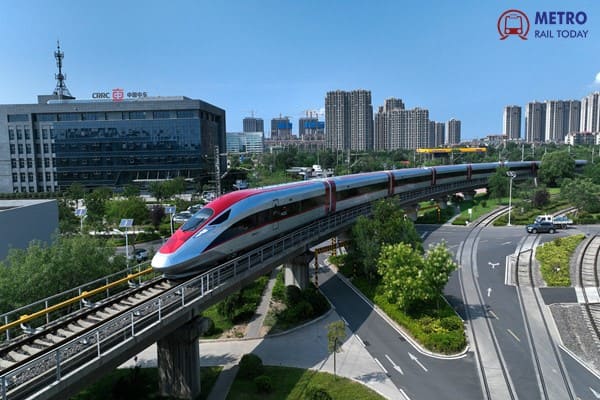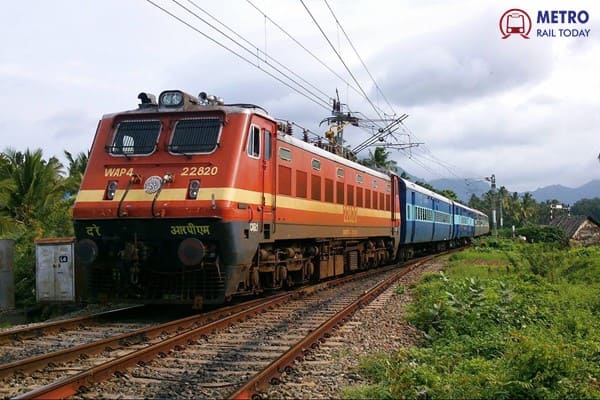 Titagarh Rail Systems Bags ₹273.24-Crore Rolling Stock Contract from Indian Railways
Titagarh Rail Systems Bags ₹273.24-Crore Rolling Stock Contract from Indian Railways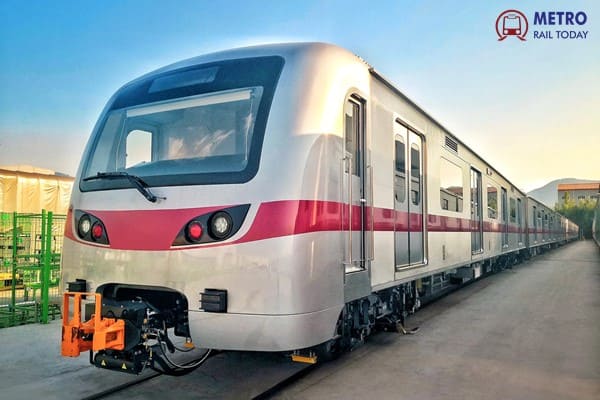 Metro Rail Transit Line (MRT-7): A New Way Forward for the North
Metro Rail Transit Line (MRT-7): A New Way Forward for the North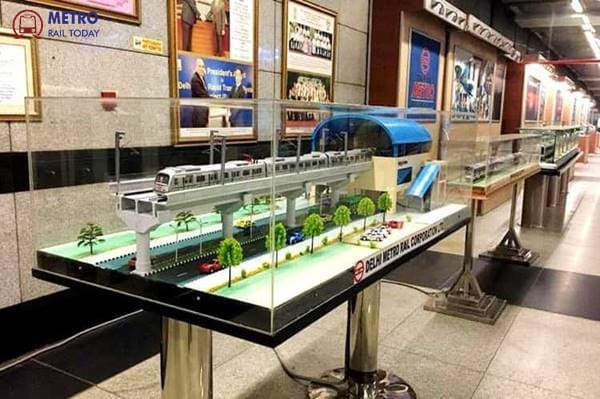 Delhi Metro inaugurates New State-of-the-Art Museum at Supreme Court Metro Station
Delhi Metro inaugurates New State-of-the-Art Museum at Supreme Court Metro Station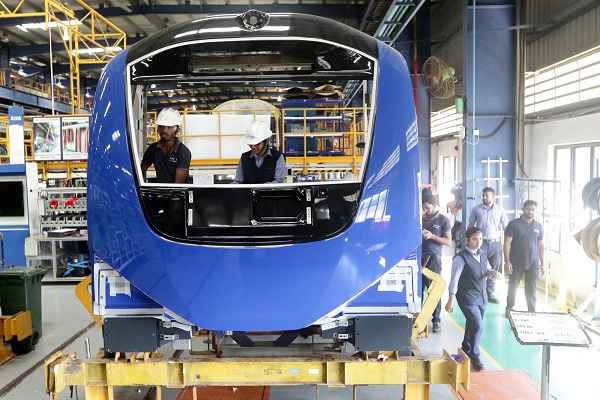 Knorr-Bremse unviels plan to invest ₹1,907 Crore in New Rail Manufacturing Facility in Chennai
Knorr-Bremse unviels plan to invest ₹1,907 Crore in New Rail Manufacturing Facility in Chennai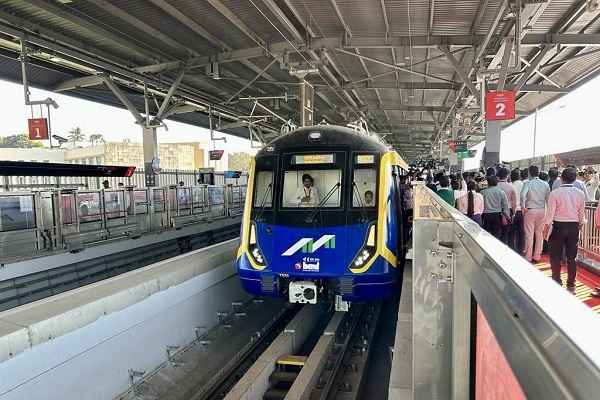 Landmark-Neev JV bags ₹151.2 crore station finishing contract for Mumbai Metro Line 2B
Landmark-Neev JV bags ₹151.2 crore station finishing contract for Mumbai Metro Line 2B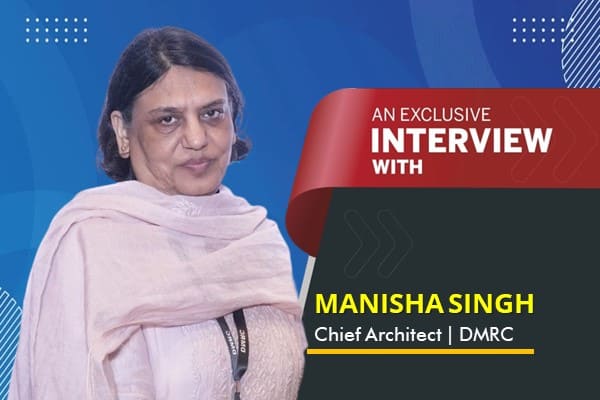 How Delhi Metro is reimagining urban architecture for a sustainable public transport?
How Delhi Metro is reimagining urban architecture for a sustainable public transport?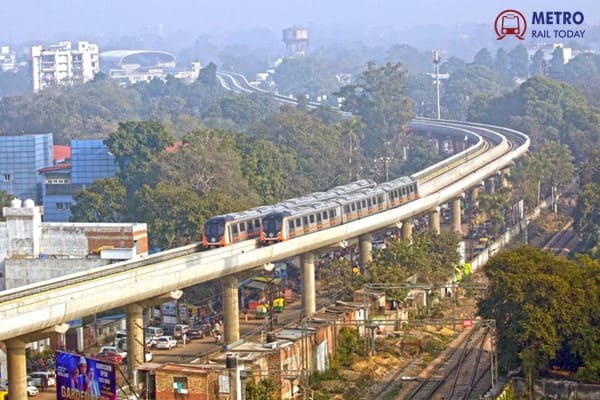 Why India needs a dedicated Ministry for Metro Railways?
Why India needs a dedicated Ministry for Metro Railways?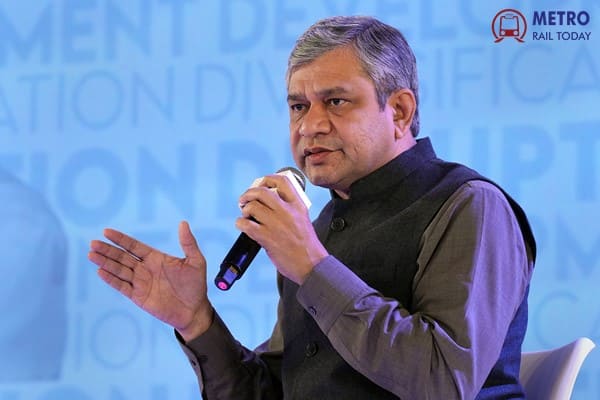 How Ashwini Vaishnaw is shaping India's Railways, Digital Future and Manufacturing Rise?
How Ashwini Vaishnaw is shaping India's Railways, Digital Future and Manufacturing Rise?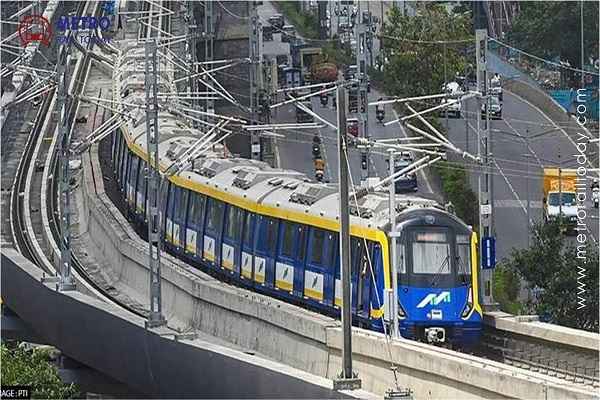 Dev–N.Rose bags ₹201.49-crore Architectural Works contract for 7 stations of Mumbai Metro Line 2B
Dev–N.Rose bags ₹201.49-crore Architectural Works contract for 7 stations of Mumbai Metro Line 2B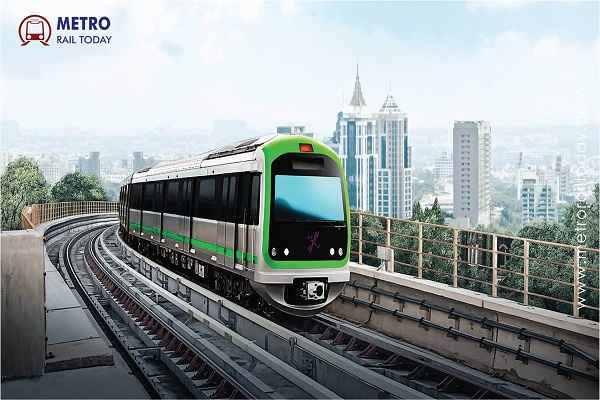 Bangalore Metro to float tenders for ₹25,311 crore Hosahalli–Kadabagere Metro Line
Bangalore Metro to float tenders for ₹25,311 crore Hosahalli–Kadabagere Metro Line
Alstom marks 10 years of MELPL JV with Indian Railways in delivering most powerful E-Locomotives
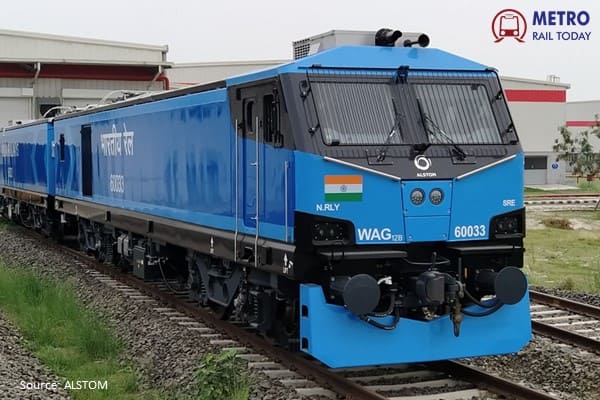
Madhepura, India (Metro Rail Today): In a landmark moment for India’s rail modernisation drive, Alstom on Wednesday celebrated a decade of its joint venture with Indian Railways—Madhepura Electric Locomotive Private Limited (MELPL)—which has become the backbone of the country’s high-powered freight operations. Established under a €3.5-billion contract awarded in 2015, MELPL has now delivered more than 550 indigenously built 12,000 HP (9 MW) double-section Prima T8 locomotives, designated as WAG-12B.
The milestone was commemorated at Alstom’s cutting-edge maintenance depot in Saharanpur, Uttar Pradesh, which, along with a similar facility in Nagpur, forms part of an advanced nationwide ecosystem that supports high locomotive availability through predictive maintenance and rapid-response teams.
The WAG-12B fleet represents one of India’s biggest Make in India success stories. Built at the 250-acre greenfield manufacturing facility in Madhepura, Bihar, the locomotives boast over 85% localisation, making India the sixth country globally to manufacture electric locomotives of this power class. Capable of hauling nearly 6,000 tonnes at speeds up to 120 kmph, the locomotives are designed to operate in extreme temperatures from −50°C to 50°C and feature advanced IGBT propulsion, regenerative braking and spacious, climate-controlled cabins.
Reflecting on the achievement, Olivier Loison, Managing Director, Alstom India, said the partnership has transformed the country’s freight movement. “This is a moment of immense pride, celebrating a strong and enduring partnership that has truly transformed freight movement in India. We have not only put India’s most powerful freight locos on the tracks but have also seen the creation of a world-class industrial ecosystem and laid a foundation for local talent and technology. This project has been a powerful engine for ‘Make in India’ and ‘Atmanirbhar Bharat’, establishing a deep-rooted local supply chain and creating over 10,000 skilled jobs.”
Industry experts note that high-horsepower electric locomotives like the WAG-12B are essential to India’s freight shift from road to rail, a transition that will reduce emissions and lower logistics costs. “Alstom’s decade-long partnership with Indian Railways reflects the outcomes that global technology and Indian manufacturing can deliver together. These 12,000 HP locomotives are not just engineering achievements—they are catalysts powering India’s green freight revolution,” said Mrs. Mamta Shah, MD & CEO, Urban Infra Group.
Over the years, Alstom has also invested significantly in skilling programmes and community development across villages in Madhepura and Saharanpur, impacting more than 30,000 lives through initiatives in education, healthcare and women’s empowerment.
Since the first locomotive entered commercial service in May 2020, the fleet has become a mainstay of India’s Dedicated Freight Corridors and was even deployed for passenger services during the peak festive season this year to meet rising demand. With a production capacity of 120 locomotives per year and ongoing technological upgrades, the Madhepura plant continues to strengthen India’s position as a global rail manufacturing hub.
As India’s rail network undergoes rapid transformation, the success of MELPL stands as a defining example of strategic public-private partnership, world-class engineering and the long-term vision behind the country’s railway revolution.





